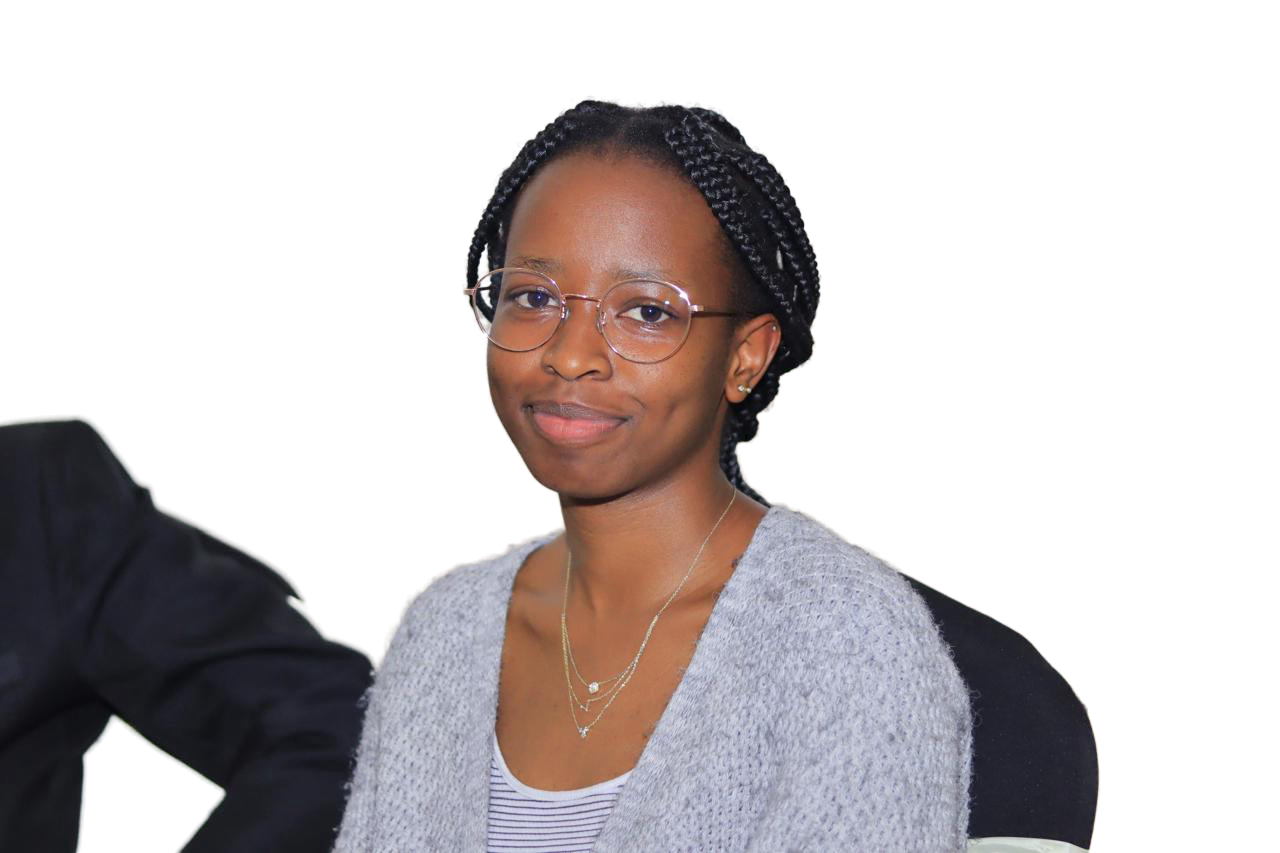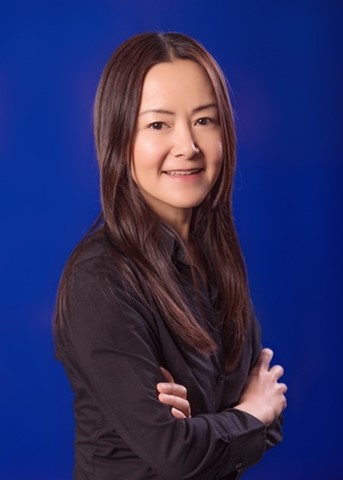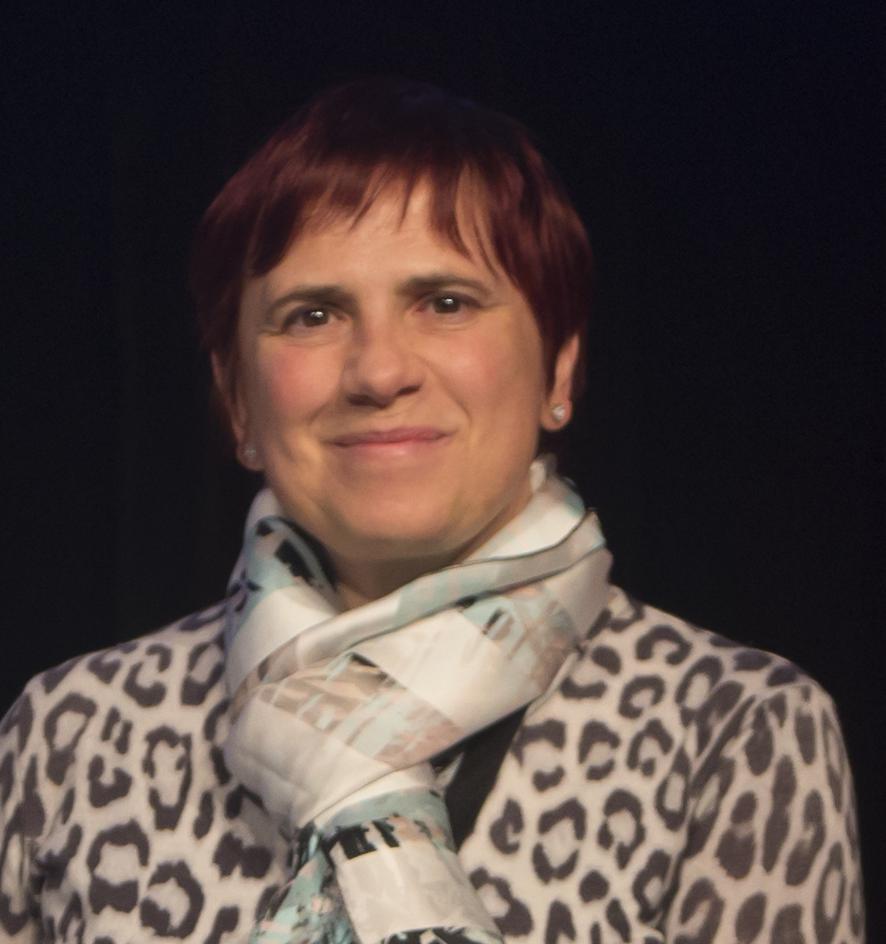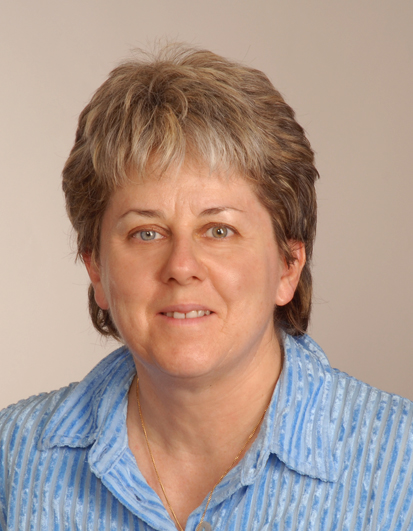Women in Signal Processing Luncheon
Be part of the vibrant dialogue at the IEEE Women in Signal Processing Luncheon! Our gathering will be graced by a distinguished panel of accomplished women in signal processing. Through engaging conversations, these esteemed panelists will generously share their personal journeys and insightful experiences in Signal Processing within the AI era. This luncheon presents an exceptional platform for networking, forging connections, and gaining valuable insights from the remarkable narratives of our esteemed speakers.
Add your name to the Women in Signal Processing Directory and join the WISP mailing list! Visit the WISP website to learn more.
Panel Moderator

Amanda Suzzanne Adhiambo is a dedicated software developer and content writer with a
strong background in computer technology. She is currently pursuing a Software Engineering
course at Moringa School and holds a Bachelor of Technology in Computer Technology from the
Technical University of Kenya.
Amanda has honed her skills through various internships and roles, including a Junior Software
Developer position at Spine Business Systems and an internship at Symphony Systems
Limited. She is proficient in a wide range of programming languages and tools.
In addition to her technical expertise, Amanda is actively involved in the IEEE community. She
has served as the Vice-Chair of the IoT Club at the Technical University of Kenya, chaired the
Empowerment, Awareness, and Visibility Subcommittee under WISP (Women in Signal
Processing), and participated in the IEEE K-12 Initiative and the IEEE Industry 4.0 Summer
School. Amanda’s achievements include winning the CA CyberRise Hackathon 2022 and
receiving recognition at the IEEE Industry Symposium at the Technical University of Kenya.
Amanda is also keenly interested in image processing, exploring areas such as image
enhancement, object detection, and image segmentation. She has worked on projects involving
facial recognition and medical image analysis, which have further fueled her passion for this
field.
Panelists

Dr. Elena Alshina: She is Chief Video Scientist, Audiovisual Technology Lab Director, Media Coding Technology Lab Director in Huawei Technologies. Elena got Master degree in Physics from Moscow State University in 1995 and PhD in Computer Science and Mathematical Modelling from Russian Academy of Science in 1998. Her field of interest includes but not limited to Mathematical modelling; Video and Image compression and processing, neural network based algorithms development. She was working both in academia and industry: Senior Researcher Russian Academy Of Science (Institute for mathematical Modelling) 1998~2006, Associate Professor National Research University of Electronic Technology, Principal Engineer Samsung Electronics 2006 (Moscow), 2007~2018 (Suwon/Seoul), Chief Video Scientist Huawei Technologies (Munich) 2018-present. For the series of publications on mathematical modelling Elena (together with her husband Dr. Alexander Alshin) got Gold Medal from Russian Academy of Science. Elena is an active participant of video codec standardization (HEVC/H.265, VVC/H.266 projects). Along with Prof. João Ascenso she is JPEG AI standardization project chair and editor.

Dr. Yan Ye received her Ph.D. from the University of California, San Diego and her B.S. and M.S. from the University of Science and Technology of China. She is currently the Head of Video Technology Lab of Alibaba’s Damo Academy in Sunnyvale California. Prior to Alibaba, she held various management and technical positions at InterDigital, Dolby Laboratories, and Qualcomm. Throughout her career, Dr. Ye has been actively involved in developing international video coding and streaming standards in ITU-T Video Coding Experts Group (VCEG) and ISO/IEC Moving Picture Experts Group (MPEG). She is currently an Associate Rapporteur of the ITU-T VCEG, the Group Chair of INCITS/MPEG task group, and a focus group chair of the ISO/IEC MPEG Visual Quality Assessment. Her research interests include advanced video coding, processing and streaming algorithms, real-time and immersive video communications, AR/VR/MR, and deep learning-based video coding, processing, and quality assessment algorithms.

Dr. Iole Moccagatta Iole Moccagatta Iole received a Diploma of Electronic Engineering from the University of Pavia, Italy, and a PhD from the Swiss Federal Institute of Technology in Lausanne, Switzerland. She is a Senior Principal Engineer at Intel working on HW Multimedia accelerators and IPs integrated on Intel platforms and products. She is an active member of MPEG and ITU-T, Chair of the MPEG/ITU-T Joint Video Experts Team (JVET) Ad-Hoc Group on Conformance and co-editor of the H.266/VVC Conformance Testing specification. She has also contributed to the Alliance for Open Media (AOM) AV1 Codec WG, and currently represents Intel in the AOM Steering Committee.She is an active member of IEEE, serving as SPS Members-at-Large and as member of the SPS Industry Technical WG, the IEEE Fourier Award for Signal Processing Committee, the SPS Technical Committee Review Committee, the SPS Membership Development Committee, and as Chair of the SPS Industry Outreach and Engagement Subcommittee. Dr. Iole Moccagatta is the author or co-author of more than 30 publications, 2 book chapters, and more than 10 talks and tutorials in the field of image and video coding. She holds more than 10 patents in the same fields. For more details see Dr. Moccagatta’s professional website

Dr. Josiane Zerubia (Dr Eng, PhD, Habilitation) has been a permanent research scientist at Inria since 1989 and Director of Research Exceptional Class since 2023. She has been heading several research teams in remote sensing at Inria in Sophia-Antipolis, France, since mid-1995: Pastis, Ariana, Ayin and most recently Ayana, which is using knowledge in stochastic modeling, image processing, artificial intelligence and remote sensing for the “New Space”. She is currently PI of two contracts for Inria: one funded by BpiFrance with Airbus DS (2020-2024) on detection and tracking of small objects in satellite images for the future CO-3D constellation to be launched in 2025, another one funded by ANR with GeoAzur and USGS (2019-2025) on detecting geological faults in satellite and UAV images. She was Professor in the best Aerospace “Grande Ecole” (Isae-Supaero) in Toulouse, France, from 1999 to 2020. She received a Doctor Honoris Causa degree from the University of Szeged in Hungary in 2020, and 3 times the Excellence Award from University of Nice (now UCA) in 2016, 2019 and 2020. She supervised or co-supervised 63 Master students, 37 PhDs and 27 post-docs in France and abroad. She is a Fellow of the IEEE (2003), the EURASIP (2019) and the IAPR (2020), and IEEE SP Society Distinguished Lecturer (2016-2017).
During the last few years (2021-2023), she was member-at-large of the Awards Board of the IEEE SP Society, member of the Best Paper Award Committee for EURASIP JIVP, member of the IAPR Fellow committee and member of the Senior Editorial Board of IEEE SP Magazine. She has been a member of the editorial board of the Foundation and Trends in Signal Processing since 2007 and of the IEEE WISP Committee since 2024. She was scientific advisor and co-organizer of ISPRS 2020 (virtual), 2021 (virtual) and 2022 congress (Nice, France) and technical co-chair of EUSIPCO 2021 (virtual, Dublin, Ireland). She is currently part of the organizing committees for IEEE ICIP’27 proposal (Perth, Australia) and IEEE ICASSP’28 proposal (Washington DC, USA). She wrote with her collaborators 4 books, 17 book chapters, 91 journal papers and 273 conference publications. Her h-index is 58, i-10 is 217, total citation number is 15 228 (on May 3d, 2024). Her main research interest is in image processing using probabilistic and artificial intelligence models for remote sensing. She also works on parameter estimation, statistical learning and optimization techniques.
